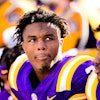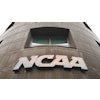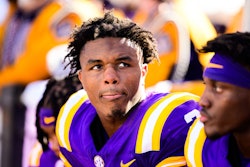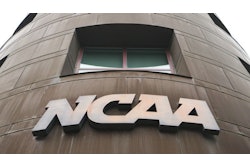 File photo
File photo
The proposal now advances to Divisions II and III for consideration during their respective governance meetings scheduled for later this month. All three divisions must approve the measure before it becomes official NCAA policy.
The decision represents the latest effort by the NCAA to reconcile its longstanding prohibitions on gambling with the evolving legal landscape following the Supreme Court's 2018 decision to overturn the federal ban on sports betting. It also acknowledges growing pressure to treat student-athletes more equitably compared to their non-athlete peers on campus, who face no restrictions on legal gambling activities.
"The Administrative Committee was clear in its discussion today that it remains concerned about the risks associated with all forms of sports gambling, but ultimately voted to reduce restrictions on student-athletes in this area to better align with their campus peers," said Illinois athletic director Josh Whitman, who chairs the committee. "This change allows the NCAA, the conferences, and the member schools to focus on protecting the integrity of college games while, at the same time, encouraging healthy habits for student-athletes who choose to engage in betting activities on professional sports."
The committee said that the proposal "is not an endorsement of sports betting, particularly for student-athletes," signaling awareness of the potential risks involved.
Despite the loosening of restrictions on professional sports betting, the NCAA maintains firm boundaries designed to protect the integrity of collegiate competition. The organization will continue to prohibit:
- All betting on collegiate sports by student-athletes, coaches, and athletic department staff
- Sharing insider information about collegiate competitions with bettors
- Advertising and sponsorships associated with sports betting during NCAA championships
These prohibitions reflect the NCAA's determination to insulate college athletics from the conflicts of interest and corruption that could arise from gambling on games in which athletes, coaches, or staff have direct involvement or knowledge.
NBA Hall of Famer and prominent media personality Charles Barkley offered pointed criticism of the NCAA's decision during a recent TNT broadcast, questioning whether the organization has adequately addressed more fundamental issues facing student-athletes.
"Let me tell you something—these kids can't even get paid for their own jerseys, but now they want to let them bet on the Knicks-Lakers game? That's crazy," Barkley said. "Look, I've been to Vegas more times than I can count, but these college kids don't need to be worrying about betting lines. They need to be focused on their studies and their game."
Barkley's comments touch on broader debates about NCAA priorities as the organization navigates name, image, and likeness (NIL) compensation, transfer portal policies, and revenue-sharing proposals—all while many student-athletes, particularly those from underrepresented communities, struggle with food insecurity, mental health challenges, and limited financial resources.
"The NCAA has been behind the times on everything—NIL, transfer portal, all of it," Barkley continued. "Now they're trying to be progressive about gambling? That's like putting the cart before the horse, man. These kids need financial literacy classes before they need betting apps on their phones."
Last month, the NCAA Committee on Infractions announced the permanent revocation of eligibility for former men's basketball players who bet on their own games while engaging in game manipulation for sports betting purposes—a stark reminder of gambling's potential to corrupt college athletics.
Currently, the NCAA enforcement staff is investigating similar violations involving 13 student-athletes across six institutions, according to the organization's announcement.
Student welfare advocates and researchers who study gambling behavior have expressed concern about the proposal's potential impact on young adults, particularly those from communities that have historically been targeted by predatory gambling marketing.
Barkley acknowledged these concerns in his commentary: "Listen, I'm all for these kids having the same rights as other students. But gambling addiction is real, y'all. The NCAA better have some serious support systems in place, because once you open this door, you can't close it. And trust me, some of these kids are gonna need help."
If approved by all three divisions, the new policy would mark a significant philosophical shift for the NCAA, which has historically taken a hard-line stance against any gambling involvement by those connected to college athletics.
The change would also raise questions about institutional responsibilities: Will schools be required to provide education about responsible gambling? How will athletic departments monitor compliance with the remaining prohibitions? And what support systems will be available for student-athletes who develop gambling problems?
Divisions II and III are expected to vote on the proposal during their governance meetings scheduled for late October. If approved, implementation details and effective dates would be announced by the NCAA national office.
















